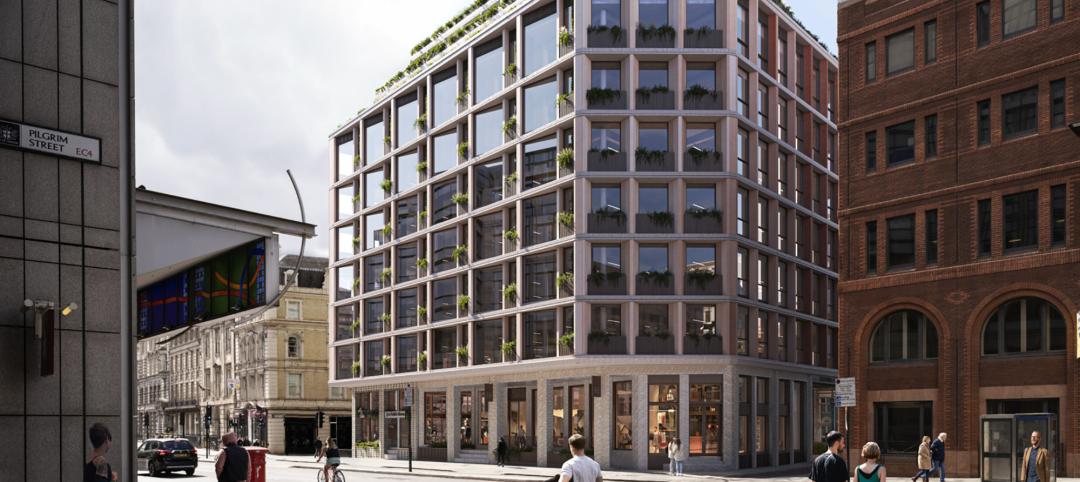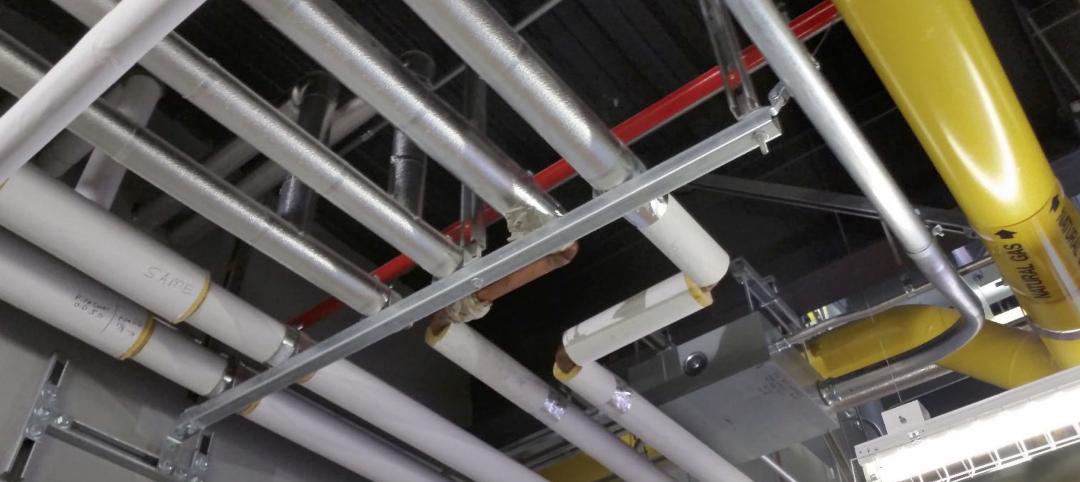Intuition tells us that views of and exposure to the outdoors are good for the human mental state. In recent years, a handful of scientific studies—most notably Heschong Mahone’s daylighting in schools research—has provided AEC teams with important data to back up design decisions around daylighting, views, biophilic design, and a stronger connection with nature.
As a result of these early studies—and our improved understanding of the human mind—building owners and real estate developers have invested considerably to inject nature into their building projects. From hospitals to schools to office buildings, nature has become big business in new construction and renovation work. Landscaped terraces, rooftop gardens, nature meditation rooms, living walls, healing gardens, on-site parks, walking paths, therapy gardens—these are de rigueur in the modern built environment.
But how much “nature” is needed on projects? Is more always better when it comes to these features and spaces? And what types of nature-inspired design elements are most effective? Considering that these components often require special maintenance procedures and staff and ongoing operational investment, it’s important to explore these questions.
New research from King’s College London, published in the peer-review journal BioScience, sheds some light on the subject. It also provides a method by which AEC teams can assess the effectiveness of nature-inspired features.
Using a custom smartphone app, Urban Mind, the research team monitored the momentary mental well-being of 108 city dwellers, who completed 3,013 “ecological momentary assessments” during a one-week period. Each participant was asked to complete seven assessments per day. Questions included: Are you indoors or outdoors? Can you see trees? Can you see the sky? Can you hear birds singing?
Among the findings: There is a “significant” lagging effect of nature on momentary mental well-being. That is, nature has a lasting positive effect on the mind.
How long exactly? It depends. The data shows, for example, that seeing trees and seeing the sky during an assessment had a statistically significant effect on momentary well-being in the next subsequent assessment, which took place an average of two hours and 25 minutes later. For those “feeling in contact with nature,” the positive mental well-being spike lingered as long as four hours and 50 minutes. Same for “hearing birds singing.” The lingering benefit of “seeing or hearing water” was not as statistically significant.
Obviously, more research is needed in this area, but the study’s basic conclusions could help AEC teams make better-informed decisions about nature-inspired design. For instance, can building design features amplify or extend this lagging positive effect? Is a three-acre healing garden overkill when one acre will do? Do we need more birds chirping inside buildings (please, no!)?
Related Stories
Government Buildings | Aug 7, 2023
Nearly $1 billion earmarked for energy efficiency upgrades to federal buildings
The U.S. General Services Administration (GSA) recently announced plans to use $975 million in Inflation Reduction Act funding for energy efficiency and clean energy upgrades to federal buildings across the country. The investment will impact about 40 million sf, or about 20% of GSA’s federal buildings portfolio.
Codes and Standards | Aug 7, 2023
Cambridge, Mass., requires net-zero emissions for some large buildings by 2035
The City of Cambridge, Mass., recently mandated that all non-residential buildings—including existing structures—larger than 100,000 sf meet a net-zero emissions requirement by 2035.
Multifamily Housing | Jul 31, 2023
6 multifamily housing projects win 2023 LEED Homes Awards
The 2023 LEED Homes Awards winners in the multifamily space represent green, LEED-certified buildings designed to provide clean indoor air and reduced energy consumption.
Sustainability | Jul 27, 2023
USGBC warns against building energy code preemptions, rollbacks
In a recent editorial, the USGBC cited a growing number of U.S. state legislators who are “aiming to roll back building energy code standards and/or preempt local governments from advancing energy-efficient building codes.”
Resiliency | Jul 27, 2023
'Underground climate change' can damage building foundations, civil infrastructure
A phenomenon known as “underground climate change” can lead to damage of building foundations and civil infrastructure, according to a researcher at Northwestern University. When the ground gets hotter, it can expand and contract, causing foundations to move and sometimes crack.
Sustainability | Jul 19, 2023
California lawmakers approve governor’s plan to accelerate green construction
California lawmakers recently approved Gov. Gavin Newsom’s infrastructure streamlining plan that aims to accelerate clean energy and infrastructure projects.
Sustainability | Jul 13, 2023
Deep green retrofits: Updating old buildings to new sustainability standards
HOK’s David Weatherhead and Atenor’s Eoin Conroy discuss the challenges and opportunities of refurbishing old buildings to meet modern-day sustainability standards.
Mass Timber | Jul 11, 2023
5 solutions to acoustic issues in mass timber buildings
For all its advantages, mass timber also has a less-heralded quality: its acoustic challenges. Exposed wood ceilings and floors have led to issues with excessive noise. Mass timber experts offer practical solutions to the top five acoustic issues in mass timber buildings.
Codes | Jul 10, 2023
Water Demand Calculator outperforms traditional plumbing codes for energy, carbon, and water savings
Using IAPMO’s Water Demand Calculator tool can result in energy, carbon, and water savings as compared to using traditional plumbing specification methods in plumbing codes, according to a study by Arup.
Contractors | Jun 30, 2023
Construction industry task force aims for standardized carbon reporting
A newly formed Associated General Contractors of America (AGC) task force on decarbonization and carbon reporting will address the challenges around reporting and reducing carbon emissions in the construction industry.

















